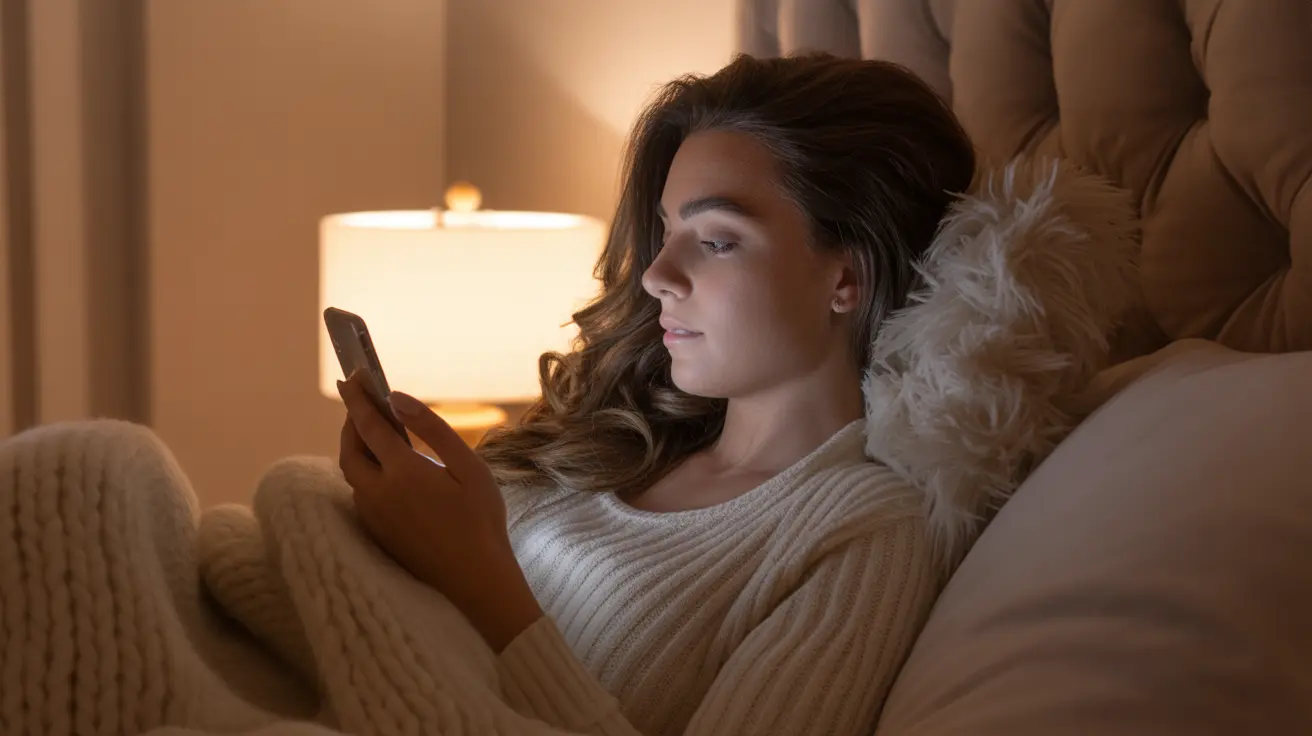In our increasingly digital world, the habit of using electronic devices before bedtime has become nearly universal. However, this common practice of screen time before bed can significantly impact our sleep quality and overall health. Understanding how screen exposure affects our sleep patterns is crucial for developing better nighttime habits.
Research has shown that excessive screen use in the evening hours can disrupt our natural sleep-wake cycle, potentially leading to insomnia and reduced sleep quality. Let's explore why this happens and what steps we can take to protect our precious sleep.
The Science Behind Screen Time and Sleep Disruption
The primary reason screens interfere with sleep relates to their blue light emission. This particular wavelength of light tricks our brain into thinking it's still daytime, suppressing the production of melatonin, our natural sleep hormone. When melatonin production is delayed, our internal body clock becomes misaligned, making it harder to fall asleep naturally.
Beyond the blue light effect, engaging with screens often involves mentally stimulating activities that can keep our minds active when we should be winding down. This cognitive stimulation can make it difficult to transition into a restful state conducive to sleep.
Most Disruptive Screen Activities Before Bed
Not all screen time is equally harmful to sleep quality. Some activities are particularly problematic:
- Social media scrolling (triggers emotional responses and endless browsing)
- Playing action-packed video games (increases alertness and adrenaline)
- Watching intense or dramatic content (stimulates emotional engagement)
- Work-related emails or messages (creates stress and anxiety)
- News consumption (can trigger worry and mental activity)
Creating a Healthy Pre-Sleep Digital Routine
Timing Matters
Sleep experts recommend stopping screen use 1-2 hours before bedtime. This buffer period allows your body to naturally increase melatonin production and prepare for sleep. During this time, consider engaging in calming activities like reading a physical book, gentle stretching, or meditation.
Screen Management Strategies
When complete screen avoidance isn't practical, consider these alternatives:
- Use night mode or blue light filters on devices
- Reduce screen brightness in evening hours
- Keep devices at arm's length to minimize blue light exposure
- Enable do not disturb mode to prevent notification disruptions
- Set app limits for evening hours
Frequently Asked Questions
- How does using screens before bed affect my risk of insomnia and sleep duration?
Using screens before bed can increase insomnia risk by suppressing melatonin production and disrupting your natural sleep-wake cycle. Studies show it can reduce sleep duration by 15-30 minutes on average.
- Which types of screen activities are most disruptive to sleep quality before bedtime?
Highly engaging or emotionally stimulating activities like social media use, video games, and work-related tasks are most disruptive. These activities increase mental alertness and make it harder to transition to sleep.
- Why does screen time before sleep cause difficulty falling asleep or reduce sleep quality?
Screen time affects sleep through two main mechanisms: blue light exposure suppresses melatonin production, and mental engagement from content keeps your brain actively stimulated when it should be winding down.
- How long before bedtime should I stop using screens to improve my sleep?
Experts recommend stopping screen use 1-2 hours before bedtime. This allows your body's natural sleep hormones to regulate and gives your mind time to decompress.
- Can turning off notifications on my phone at night help reduce sleep disturbances?
Yes, turning off notifications can significantly reduce sleep disturbances by preventing unexpected alerts that can startle you awake or tempt you to check your phone during sleep hours.
Creating healthy boundaries with our devices before bedtime is essential for maintaining good sleep hygiene. By implementing these evidence-based strategies and being mindful of our screen time habits, we can work towards achieving better, more restorative sleep.




